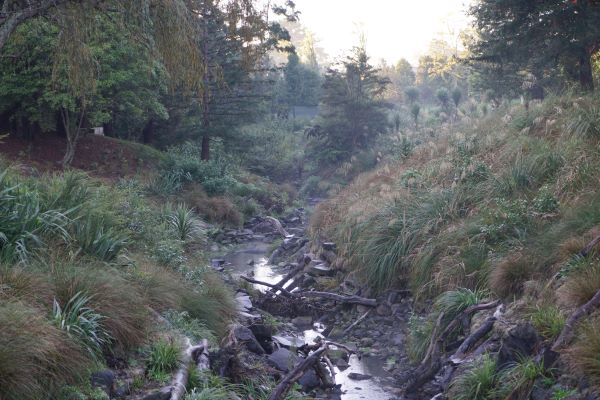
Tiakina te wai: Reimagining the delivery of water services by engineers

La Rosa Reserve Stream Daylighting – example of established stream ‘daylighting’, bringing buried pipes to the surface, restoring the mauri (life essence) of the Upper Avondale & Parahiku tributaries and lifting resilience of the stormwater network to large rainfall events (photo credit: Jack Turner).
He puna wai, he puna kai, he puna reo, he puna ora, ita a ita. A spring of water, a bountiful spring, a spring of language, a spring of health - hold fast! Wai (water) is a core part of our whakapapa (genealogy) – our waters are inherent to our identity and fundamental to who we are as kaitiaki (stewards). Colonial land use and water management practices introduced a paradigm of dominion over taiao (environment) in direct contrast to te ao Māori (Māori worldview). Current water management practices classify water into discrete parts, separating forms of water associated with the natural environment from those associated with service and delivery infrastructure - the ‘three waters’ comprising drinking water, stormwater (surface runoff), and wastewater (water used and discharged from homes i.e. bathroom and kitchen waste). This delineation inadequately considers the connectivity of the water cycle and instead manages these waters in isolation. Te Mana o Te Wai framework within the National Policy Statement for Freshwater Management provides a hierarchy for prioritising the health and wellbeing of the water first. This research proposes a kaupapa Māori systems approach to understand how Māori engineers can contribute to the delivery of water services based on mātauranga Māori, kaupapa Māori, and te ao Māori, and how Tangata Tiriti engineers can successfully work with Tangata Whenua in relation to wai and the delivery of water services. The methodological approach will include interviews with practitioners working for water in the infrastructure sector and iwi/hapū case studies. With understanding of the status quo, the foundations for teaching water engineering in a te ao Māori centred way can be developed allowing Māori and non-Māori engineers to better understand how Māori culture can guide decision making, design, and delivery for water services. The research will produce a toolbox to support industry practice.
